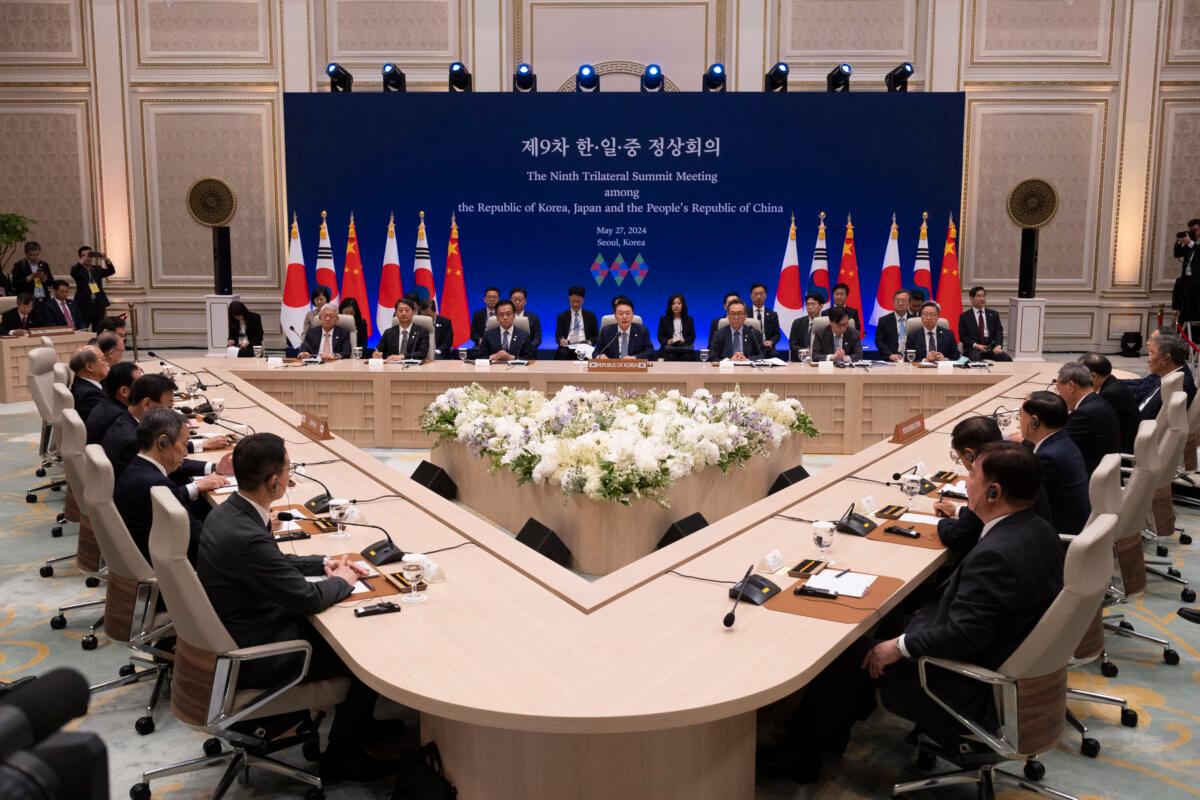China, Japan, and South Korea Renew Trilateral Talks Despite Regional Tensions
The Chinese regime is actively working to strengthen relationships with Tokyo and Seoul as these two major trade partners move closer to Washington.
China, Japan, and South Korea have agreed to enhance cooperation following a summit where leaders of the three Asian nations met in Seoul after over four years.
Yoon expressed his desire to resume free trade agreement negotiations among the three countries, while Kishida emphasized their shared responsibility for regional peace and announced that Japan would host the next trilateral leaders’ meeting.
In 2008, the leaders of these economies, which make up about a quarter of the world’s GDP, agreed to hold annual meetings. However, these meetings were put on hold after the last one in December 2019 in Chengdu due to the COVID-19 pandemic and complex relationships between the countries.
On the Chinese side, Premier Li expressed the regime’s interest in collaborating with South Korea and Japan on economic and technological initiatives, particularly in supply chains and cutting-edge fields like artificial intelligence.
The summit discussion was also overshadowed by the nuclear threats posed by North Korea, with the Kim Jong Un regime notifying Japan of its intention to launch a rocket for a second military spy satellite.
Despite Beijing’s efforts to bridge the gap between Seoul and Tokyo, analysts believe there is minimal hope for significant improvement in the relationship among the three neighbors.
“China aims to mend diplomatic ties with South Korea and Japan, and the summit provides a platform for this. However, the actual outcomes will heavily rely on China’s broader strategy,” noted Chen Ping-Kuei, an expert in international relations at Taiwan’s National Chengchi University.
Chen remains apprehensive about the CCP’s diplomatic moves, pointing out that the Chinese premier criticized the expanding partnership between the two countries and Washington while advocating for cooperation.

There is little indication that Yoon and Kishida responded to Li’s calls, according to international security expert Chen Shih-min from National Taiwan University in Taipei.
He believes it’s expected for Japan and South Korea to explore economic ties with China due to shared economic challenges. However, in critical areas like security and supply chains, both Tokyo and Seoul are likely to strengthen their relationships with Washington.
“Japan and South Korea are likely to continue prioritizing and focusing on bolstering their cooperation with the United States, a trajectory that is unlikely to change,” noted Chen Shih-min.
Kishida also expressed “serious concerns” about Hong Kong, Xinjiang, and the South China Sea, as stated in a readout from his office. Regarding Taiwan, Kishida informed Li that Japan is closely monitoring developments, including military activities.
The Associated Press contributed to this report.





